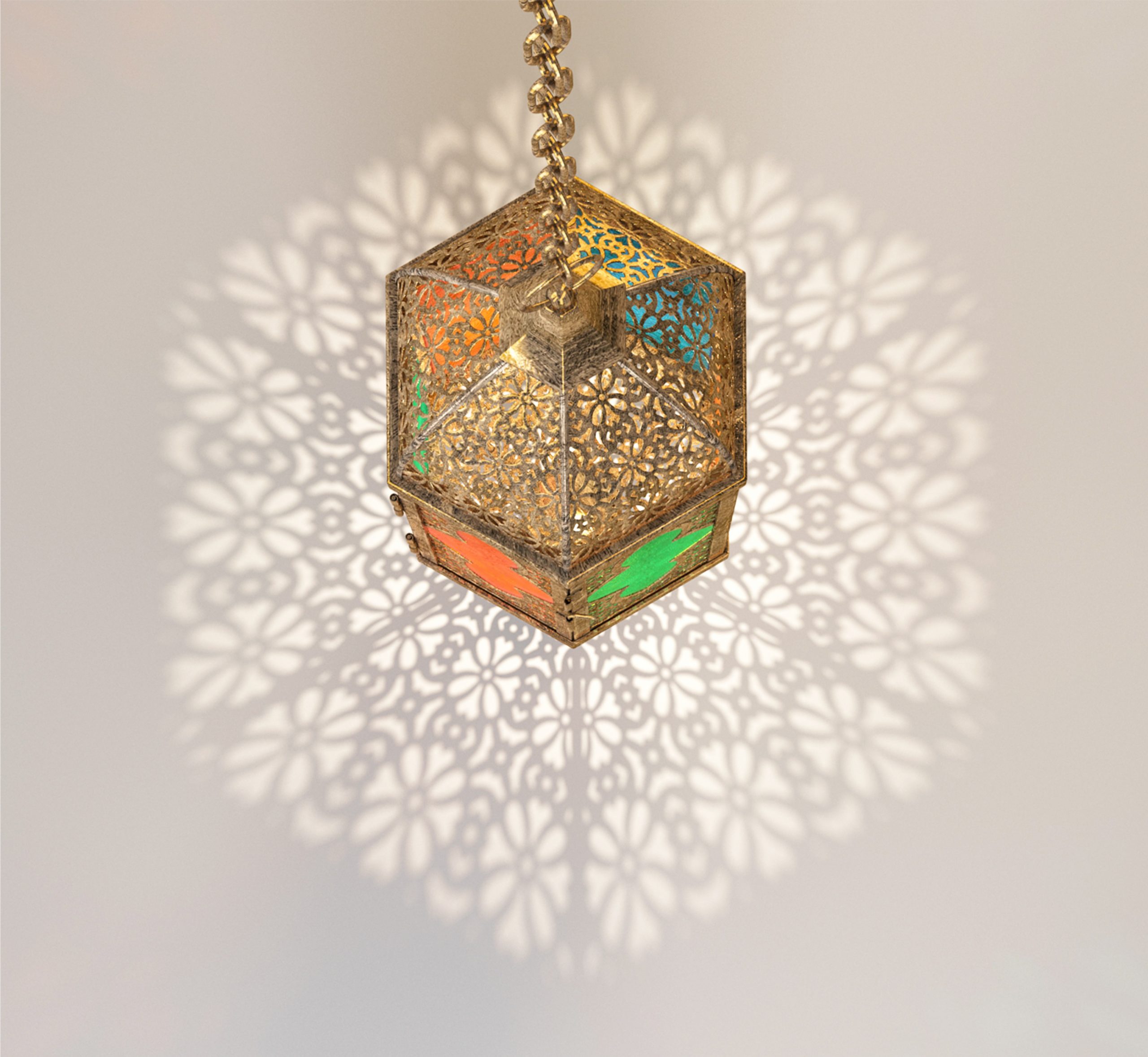
Shamail Ahmad, London, UK
Humanity undeniably shares a collective experience when it comes to mercy – from our infancy, we experience the mercy of mothers as they lie awake at night tending to us, and we exercise mercy as children, when we rush to help a friend who has fallen at the playground. To humankind, mercy offers purity; it allows us to clear our wrongdoings and feel light, whether it’s having mercy on the downtrodden or receiving mercy when one is at their lowest.
Perhaps this is why mercy is the hallmark of a ‘good’ nation: one which chooses to empathise with a weaker country rather than taking advantage of it, and brings about a nationwide reform within its citizens.
Mercy, in all its forms, has always been about helping out those in need. This is why the dialogue surrounding mercy is dominated by the major religions of the world, for as they reflected on the mercy of their Creator, they strived to exercise that same mercy upon others.
Mercy Through the Ages
Mercy has continually played a vital role in all religions. The impetus for mercy was twofold: to receive grace and mercy from God, and to live mercifully so that one’s environment was replete with it. This is why every religion has stressed the importance of mercy.
For example, mercy is a key tenet of Buddhism, one of the oldest belief systems in the world. Buddhism practices the overarching principle that ‘as a mother with her own life guards the life of her own child, let all-embracing thoughts for all that lives be thine.’[1] Thus, Buddhists believe that one ought to mercifully embrace others just as a mother shows mercy to her child.
Islam too embodies this principle but also considers this mercy a fundamental part of God’s relationship with man: ‘If an individual keeps in mind the relationship that a child has with its mother and reflects over the philosophy of prayer, it becomes very simple and easy to understand. The second form of beneficence teaches us that one form of grace is received by asking for it.’[2] These words by the Founder (as) of the Ahmadiyya Muslim Community speak to the mercy of God, and the role that prayer plays in receiving such mercy.
Mercy is also interwoven into the fabric of Judaism. The Torah tells us to ‘Be merciful, just as your Father is Merciful’.[3] In the book of Hosea, the God of Judaism states, ‘For I desire mercy and not sacrifice; and the knowledge of God more than burnt offerings.’[4] Furthermore, Jews believe in the ‘Thirteen Attributes of Mercy’. It is stated that when the Jewish people committed many grievous sins, and Moses (as) did not think there was a chance of repentance, God appeared to Moses (as) and taught him thirteen attributes, now known as the ‘Selichot Prayer’. God then stated that the Jews should recite these attributes in order to be forgiven.[5] Although this has to do with forgiveness, Exodus uses the word ‘Rahum’, which also coincides with the Arabic word ‘Rahim’ meaning Merciful, thus elucidating and underscoring the belief of mercy in Judaism.
The concept of mercy in Christianity builds upon that of Judaism, but places a greater emphasis on showing mercy to others. The New Testament quotes Jesus (as) as saying, ‘Blessed are the merciful, for they will receive mercy’.[6] Thus, mercy from God demands that one should show mercy to others. The New Testament clearly lays this principle out: ‘For judgment will be without mercy to anyone who has shown no mercy; mercy triumphs over judgment.’[7]
Islam also echoes this very same principle, as the Holy Prophet (sa) once stated, ‘He who is not merciful to others, will not be treated mercifully’.[8] Christians are taught to ‘Be kind to one another…as Christ has forgiven you’ and to remember that mercy is critical to attaining wisdom.[9,10] Thus, mercy permeates the Christian scripture, and desires that one become merciful just as Jesus (as) was merciful.
Similarly, within Sikhism, we find beautiful teachings of mercy: ‘Show kindness and mercy to all beings, and realise that the Lord is pervading everywhere; this is the way of life of the enlightened soul, the supreme swan.’[11] Fascinatingly, the word ‘Rahima’ also exists within the Guru Granth as an attribute of God Almighty (i.e. the Merciful One); therefore, this singular word unites several faiths in their concept of mercy, displaying just how universal and all-encompassing it is to be merciful.
The Islamic Concept of Mercy
As humanity gained more knowledge and began to develop as a civilisation, our sense of morality further developed, and altruism took root. More often than not, this push towards piety was brought about by a religious motivation: the Egyptians were motivated by the fear that once their heart was weighed, it would be too heavy on the scales of the afterlife, whilst ancient Chinese rulers were motivated by the ‘High-God’ to act righteously, lest they lose the ‘Mandate of Heaven’.
These different methods of viewing God Almighty shaped the followers of such religions.
Thus, the attributes of Allah Almighty are crucial for understanding Islam and its adherents. The Holy Qur’an begins every chapter (except one) with the words ‘In the name of Allah, the Gracious, the Merciful.’ Both of these attributes are derived from the same root in the Arabic language, i.e. ‘Rahmah’, yet they take the shape of different nouns. This subtle difference delineates the mercy of Allah the Almighty into two main categories. The Second Caliph (ra) of the Ahmadiyya Muslim Community beautifully explains that God’s attribute of Rahman denotes ‘mercy comprehending the entire universe’, whilst the attribute Rahim denotes ‘a mercy limited in its scope but shown repeatedly’.[12]
At a cursory glance, both of the attributes may seem identical, however, the Founder (as) of the Ahmadiyya Muslim Community explains,
‘His mercy is of two kinds. One, which has been eternally manifested without being the result of any action on the part of anyone. For instance, heaven and earth, the sun, moon and planets, water, fire and air, and all the particles of the universe which were created for our comfort, and all those things that were needed by us, were provided before our coming into being. All this was done when we were not even present. No action had proceeded from us. Who can say that the sun was created on account of some action of his, or that the earth was created in consequence of some good action of his? This is the mercy which came into operation before the creation of man and is not the result of anyone’s actions. The second kind of divine mercy comes into operation in consequence of human action. This needs no illustration.’[13]
Thus, God’s mercy completely envelops every human being, and truly deserves immense gratefulness. Furthermore, God Almighty did not discriminate in His mercy, for all humans enjoy the blessing of divine mercy, as the Founder (as) of the Ahmadiyya Muslim Community once more states,
‘My countrymen, a religion which does not inculcate universal compassion is no religion at all. Similarly, a human being without the faculty of compassion is no human at all. Our God has never discriminated between one people and another. This is illustrated by the fact that all the potentials and capabilities which have been granted to the Aryans have also been granted to the races inhabiting Arabia, Persia, Syria, China, Japan, Europe and America. The earth created by God provides a common floor for all people alike, and His sun and moon and many stars are a source of radiance and provide many other benefits to all alike. Likewise, all peoples benefit from the elements created by Him, such as air, water, fire and earth, and similarly from other products created by Him like grain, fruit, and healing agents, etc. These attributes of God teach us the lesson that we, too, should behave magnanimously and kindly towards our fellow human beings and should not be petty of heart and illiberal.’[14]
Once this sincerity is applied, God Almighty excels us in mercy, as God once revealed to the Holy Prophet (sa) of Islam:
‘He who draws close to Me by the span of a palm, I draw close to him by the cubit, and he who draws close to Me by the cubit, I draw close to him by the space (covered) by two hands, and he who walks towards Me, I rush towards him, and he who meets Me in the state that his sins fill the earth, but not associating anything with Me, I would meet Him with the same (vastness) of pardon (on My behalf).’[15]
However we as humans must apply this mercy to others, and become merciful ourselves. Many questions arise when one wishes to do so: is it more merciful to aid a person or to pray for them? And who deserves our mercy in our daily lives? These questions were answered for Muslims by the actions and sayings of the Holy Prophet (sa) of Islam. For example, it was well known that the Holy Prophet (sa) would help with chores around the house, such as cleaning and getting drinking water. He would also kiss his children and grandchildren and never considered it a sign of weakness to show love to others.
The Holy Prophet (as) would spend hours in his individual prayer, but regarding the congregational prayer, he once stated, ‘Whenever I start the prayer, I intend to prolong it, but on hearing the cries of a child, I cut short the prayer because I know that the cries of the child will incite its mother’s passions.’[16]
Even to his enemies, he emulated mercy: on the day that he re-entered Makkah a victor – the very same city that persecuted him and his followers, killed his companions, sought to assassinate him, and eventually forced him to flee – the people of Makkah anxiously awaited his verdict. Among the crowd sat the woman who killed his uncle, and the man who murdered his daughter. On that day, he displayed what it means to be merciful, and pardoned all of them for their wrongdoings. The man who murdered his daughter stood before him and asked forgiveness for causing his daughter Zainab’s (ra) death. To him, the Prophet (sa) of Islam replied, ‘Habbar (ra), if God has planted in your heart the love of Islam, how can I refuse to forgive you? I forgive everything you have done before this.’[17]
Where did this mercy originate? And how did he and his followers become merciful in a merciless society?
It was only the mercy of God Almighty that enabled him to be adorned with the colours of Allah. Indeed, he and his followers reflected the brilliant light of Allah the Almighty, just as the Moon reflects the light of the Sun in the darkness of night.
Mercy in the Month of Ramadan
The first ten days of Ramadan provide an opportunity for Muslims to seek and obtain Allah’s mercy. Muslims view this mercy as one of His most fundamental attributes, but for what reason? And why are the first ten days of Ramadan attributed towards it?
Beyond abstinence from food and water during this month, Muslims must pay even greater attention to refraining from sins such as foul language, ill-behaviour, and injustice, among other things. However, Ramadan also demands that one goes above and beyond, not only refraining from sin and covering the basics, but also striving to achieve a higher level of righteousness. To kick-start and initiate this journey, the first ten days of Ramadan are dedicated to Allah’s mercy.
Here, the worshipper becomes aware that God’s mercy may embrace the souls of those who yearn for Him in an unusual and potent manner. Islam thus declares that people with different struggles and turbulent pasts have this unique opportunity to connect with their Creator.
Within these ten days of mercy, the Muslim worshiper is reminded to show mercy wherever they can; mercy to the creation of Allah, mercy to those who have committed past wrongs, and mercy to those who are not known.
The Holy Prophet (sa) once narrated a simple story to illustrate this idea. He explained that there was a woman of ill repute. She was passing by and saw a dog panting near a well, about to die from thirst. She took off her shoe and proceeded to reach into the well and collect some water for the dog to drink. Because of this, Allah had forgiven her sins.[18] She had shown mercy to Allah’s creation, and was therefore shown mercy from Allah despite her sins.
The Founder of the Ahmadiyya Muslim Community, Hazrat Mirza Ghulam Ahmad (as), beautifully summarises this matter:
‘Show mercy to His servants and do not wrong them by your tongue or your hand or by any other means, and strive for the welfare of God’s creation…There are many who show meekness, but they are wolves from within. There are many who outwardly appear clean, but from within, they are serpents. You, therefore, cannot be accepted by God unless you are the same inside and out. If you are above others, have mercy on the lowly and do not look down upon them. If you are learned, counsel the ignorant and do not degrade them with disdain. If you are wealthy, serve the poor, and do not treat them with arrogance and self-conceit.’[19]
The first ten days of Ramadan serve as a profound reminder of Allah’s infinite mercy, and the role it must play in the lives of humans. These ten days motivate Muslims to reflect on God’s boundless forgiveness and compassion, inspiring them to seek self-reformation and to extend mercy to others. This period is not simply about seeking forgiveness, but about embodying mercy in our daily lives, reinforcing the connection between divine mercy and human actions. By striving to emulate this attribute of Allah, Muslims embark on a spiritual journey that deepens their relationship with the Creator and fosters a compassionate, righteous society.
Once these ten days of seeking the perfect mercy of Allah come to an end, the ten days of forgiveness begin, enabling a believer to transition from understanding and pursuing Allah’s infinite mercy, straight into seeking forgiveness from Him, and forgiving others as well. Thus, Ramadan provides a faultless method and strategy to bring one close to Allah and attain a life-changing reformation.
………………………………………………………
About the Author: Shamail Ahmad is an Imam of the Ahmadiyya Muslim Community in the UK and serves in the design team of The Review of Religions.
………………………………………………………
ENDNOTES
1. Khuddaka Patha, Metta Sutta.
2. Hazrat Mirza Ghulam Ahmad (as), Malfuzat – Vol. I (Farnham, Surrey: Islam International Publications ltd., 2018), 126.
3. The Bible, Leviticus, 19:2.
4. The Bible, Hosea 6:6.
5. The Bible, Exodus 34:6-7.
6. The Bible, Matthew 5:7.
7. The Bible, James 2:13.
8. Sahih al-Bukhari, Hadith 6013.
9. The Bible, Ephesians 4:32.
10. The Bible, James 3:17.
11. Sri Guru Granth Sahib Ji – Ang 508.
12. Hazrat Mirza Bashiruddin Mahmud Ahmad (ra), Five Volume Commentary of the Holy Qur’an, 1:1.
13. Hazrat Mirza Ghulam Ahmad (as), The Essence of Islam – Volume I (Tilford, Surrey: Islam International Publications Ltd., 2007), 44.
14. Hazrat Mirza Ghulam Ahmad (as), A Message of Peace (Tilford, Surrey: Islam International Publications Ltd., 2007), 6.
15. Sahih Muslim, Hadith 2687a.
16. Sahih al-Bukhari, Hadith 105.
17.Hazrat Mirza Bashiruddin Mahmud Ahmad (ra), Life of Muhammad (as)(Tilford, Surrey: Islam International Publications Ltd., 2013), 167-169.
18. Sahih al-Bukhari, Hadith 3321.
19. Hazrat Mirza Ghulam Ahmad (as), Our Teaching (Tilford, Surrey: Islam International Publications Ltd., 2018), 3.




Add Comment